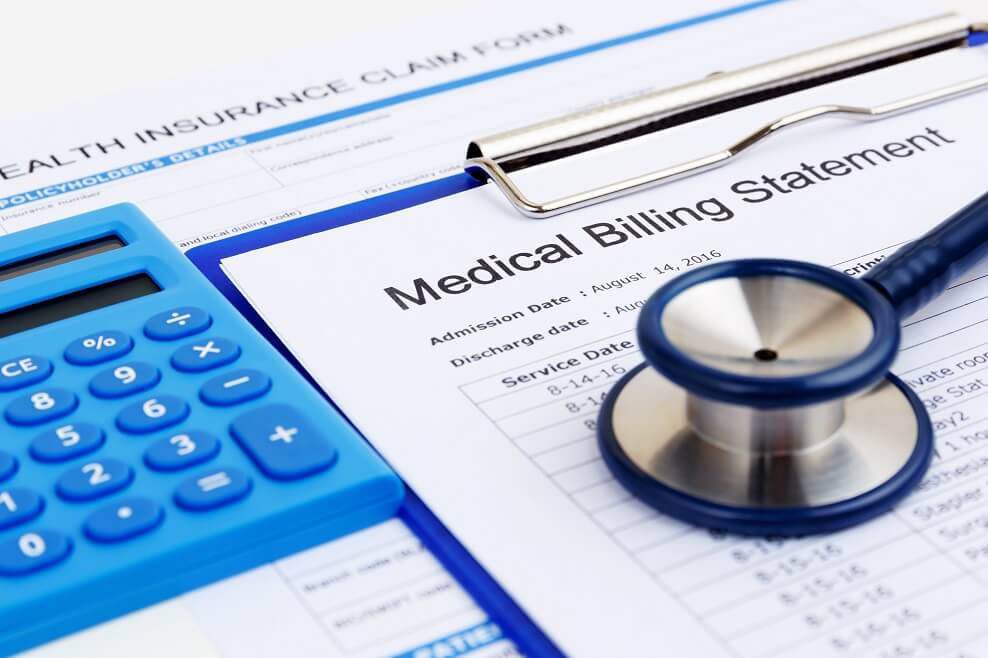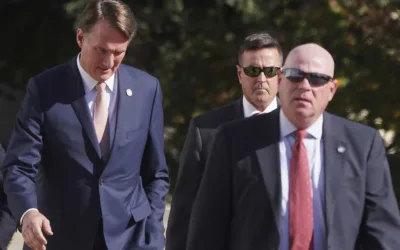
Groups try to restart campaign, while business owners explain why everyone can’t afford to include it.
RICHMOND- With COVID-19 cases on the rise, it’s more important than ever that people are able to stay home from work if they’re sick. Unfortunately, 1.2 million Virginians don’t have paid sick leave as an option, forcing them to choose between their health and their paycheck. The Virginia Interfaith Center of Public Policy wants to change that.
“At the end of the day, people are healthier when they have the option to take time off and recuperate or see a doctor,” said Richmond City Health Director Danny Avula. “This pandemic has really clarified the need for this policy right now.”
According to Avula, if essential workers had access to sick leave, there’d be a drastic reduction in exposure and spread of COVID-19, especially with how many COVID-19 outbreaks have happened in restaurants. Only four months ago, a Glen Allen grill was connected to a cluster of COVID-19 cases after holding a live music event.
On Tuesday, the VICPP held their first virtual meeting with business owners, restaurant workers and health professionals to talk about why Virginians deserve paid sick leave and how they’re working to get it.
Why We Need Paid Sick Leave
Even before the pandemic, the lack of access to paid sick leave was an issue. However, COVID-19 only made this problem worse. If someone is exposed to COVID-19, they’re supposed to quarantine for at least two weeks. But for many, losing 14 days of work is not an option. It’s an incredibly difficult choice to make.
“In the restaurant industry, a day gone from work can mean no groceries or a late rent payment,” said Richmond restaurant server Josh Briere. “In my six years of working, I’ve worked with single mothers, people who’re 60 years or older, people facing food insecurity. I’ve never met a rich restaurant worker.”
Right now, there are thousands of Virginians who have to make the choice between paying their bills and their health. Briere is one of those. A student at Virginia Commonwealth University, Briere has worked in the restaurant industry for six years, juggling school and internships while providing for himself. And even before the pandemic, he would see people come into work while they were sick.
“There were countless restaurant workers, even before the pandemic, going to work sick. When COVID-19 began ravaging our nation in March, right before everything started to get shutdown,” said Briere. “We really could’ve used paid sick days. There were so few tests available [that] many people kept chugging along, thinking that they only had a cold or allergies.”
What the state really needs is a safety net, he argued.
“It’s immoral, in my opinion, to do anything besides that,” said Briere.
RELATED: How Do You Stop Racism? First, You Have to Recognize It
Black and Brown Workers Affected at Higher Rate
While COVID-19 has hit everyone hard, it’s important to acknowledge the problems minority and low income communities face. Black and brown Virginians disproportionately make up the essential workers in the state. So, this lack of paid sick leave hit these communities the hardest.
“We’ve also seen, particularly in low-income communities and minority communities, jobs that don’t provide access to sick leave or any kind of benefits,” said Avula. “A lot of these people aren’t even getting tested. If they’re symptomatic, they know what’s to come. If they get tested and they’re positive, they’re going to get called out of work. It’s an untenable decision for so many people.”
According to the Commonwealth Institute, a third of all essential workers are Black, despite only making up 19% of the population. Immigrants and women are often overrepresented as well. Right now, women make up 66% of essential workers. That number rises to 78% and 87% in the child and healthcare industry.
“Catching a cold should not get you evicted or leave your family hungry,” said Briere. “We need a paid sick day standard and that issue is even more important in the Age of COVID.” However, despite this, many lawmakers have refused to create a paid sick leave mandate. But, there are.
“COVID has made it abundantly clear that paid sick leave not only benefits that individuals, but it has benefits for the workplace,” said Avula.
Paid Sick Leave Also Helps Businesses
While there are clearly plenty of benefits for employees, paid sick leave actually helps businesses out as well. Besides the obvious fact that you’d want all your employees in good health, paid sick leave also helps increase productivity. Buz Grossburg ,owner of Buz and Ned’s Real Barbecue, said paid sick leave is the baseline to making sure his employees live comfortable lives.
“We’re doing it. We’re providing five days for our employees,” said Grossburg. “But the government needs to mandate it, so that everybody is under the same rules.”
Unfortunately, without government intervention, it’s hard for businesses to provide paid leave for their employees. In order to provide paid sick leave to their employees, businesses often have to raise their prices. But, if you’re competing against another business who has lower prices because they don’t provide paid sick leave, you’re most likely going to end up losing money. It only works when all businesses are required to provide sick leave.
About four years ago, Grossburg himself tried to provide his employees with both paid sick leave and medical benefits. The results were overall good for both the employees and management. According to Grossburg, they saw higher productivity, employee loyalty and less stress on their managers. But, in the long run, they couldn’t afford it.
“We were doing it alone. There was no governmental mandate to make this happen and work for small businesses,” said Grossburg. “So we had to end it. There was no way for us to increase our prices because we’re in a competitive situation with all the other restaurants in town.”
What Are Lawmakers Doing to Fix It?
Overall, it seems that most Virginians, regardless of political affiliation, support paid sick leave legislation. A study from the Virginians for Paid Sick Leave coalition showed that 83% of Virginians are in favor of it, including 96% of Democrats, 78% of Independents and 72% of Republicans.
But, despite this support, none of the bills proposed can seem to get off the ground.
Since the pandemic started, many lawmakers have created bills that would make paid leave mandatory across the state. Unfortunately, none of these bills have made it through the Senate. In August, the Senate killed a bill that would’ve given workers two weeks of paid sick leave. A total of 14 senators voted to kill the bill, with only Sen. Adam Ebbin voting in support. At the time, legislators cited that because businesses were struggling due to COVID-19, it would be unfair to require PTO.
Now, there are a few bills in the works that could potentially bring paid sick leave to the commonwealth. Sen. Barbara Favola has one that would mandate business who already provide PTO to allow workers to care for a sick family member. Del. Elizabeth Guzman, who’s had a long history of fighting for paid sick leave, introduced a bill that would give five paid sick days to workers.
No Sick Leave Bills Are Ideal
However, according to VIPCC, none of these bills are ideal.
For example, Guzman’s bill does not include restaurant workers at this point in time. Another example is the inclusion of part-time workers in these bills. Being a restaurant worker himself, Briere knows better than most that many part-time workers work several jobs.
“A part-time job doesn’t always mean you’re working 20 hours a week,” said Briere. “You’re often working 40+ hours a week at several different jobs. That’s the nature of the service economy.”
However, VICPP officials argue that this lack of inclusion was ultimately necessary in order to get Virginia’s senators on board.
“We tried to craft a bill that would address the concerns of senators so that we could get something through Senate that would help a good number of workers in Virginia,” said Kim Bobo, the Executive Director of the VICPP. “Not all, but but a good number.”
What Comes Next?
The VIPCC is expecting Guzman’s bill to pass through the House and hope that the Senate will approve it during the upcoming short session. If the bill is passed, the Coalition has every intention of making it broader to include restaurant workers. But, because of the Senate’s killing of the first bill, they have to settle for compromise in the meantime. If passed, July 1 is earliest that these bills could take effect.
The General Assembly’s session will start on Jan. 13. and will be shorter than most, only lasting 30 days. If you’d like to reach out to your delegates, you can find their contact information online. You can also find your senator’s contact information online as well.
Arianna Coghill is a content producer with Dogwood. You can reach her at [email protected].

Here’s everything you need to know about this month’s Mercury retrograde
Does everything in your life feel a little more chaotic than usual? Or do you feel like misunderstandings are cropping up more frequently than they...

VIDEO: Check out Dogwood’s new merch line
Big news, Virginia! We've officially launched our Dogwood merch line 🎉 This year, we celebrate 5 years of bringing you Virginia news you can use....

VIDEO: Your support matters!
Your support matters! Donate today. @vadogwoodnews Your support matters! Visit our link in bio to donate today. #virginianews #virginia #community...

Op-Ed: Virginia’s new Democratic majorities pass key bills to improve your lives, but will Youngkin sign them?
The 2024 Virginia General Assembly regular session has wrapped up. It was a peculiar session from the outset, with Democratic majorities in the...

From the state rock to the state flower, here’s how Virginia got its symbols
Have you ever wondered why the Dogwood is the state flower? Or how the cardinal became the state bird? We’re here to answer those questions and more...

VIDEO: Second-gentleman Douglas Emhoff gives speech on reproductive freedom
Second gentleman, Douglas Emhoff touched on reproductive freedom not only being a woman's issue but "an everyone's issue" during the Biden-Harris...




